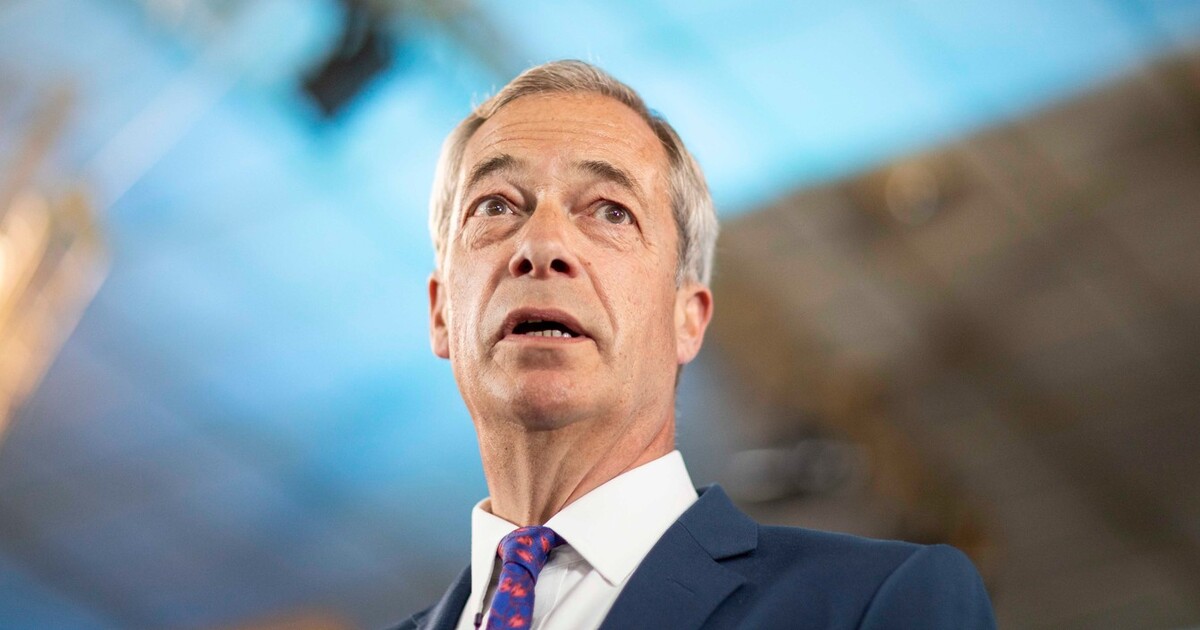A Brexit-Damaged England Now Embraces Continental European Politics
Britain now looks more like most EU member states where four, five or more parties all lay claim to votes and posts in government at the national and local level.
May 5, 2025

A Strategic Assessment Memo (SAM) from the Global Ideas Center
You may quote from this text, provided you mention the name of the author and reference it as a new Strategic Assessment Memo (SAM) published by the Global Ideas Center in Berlin on The Globalist.
Who would have ever thought that a decade after the Brexit vote, British politics is becoming ever more fully European in outcome? Most significantly, the long-time effective two-party system is under great threat.
For concrete evidence, look no further than the voting share of Labour and the Tories in the most recent round of local elections. It is diminishing significantly, despite the country’s first-past-the-post voting system, which has traditionally curtailed the voting fortunes of other political parties.
As a result, Britain now has a four- or five-party system, including Reform, the Lib Dems and the Greens, with space for smaller regional parties from Scotland, Wales and Northern Ireland.
Nigel Farage, closet admirer of continental European politics?
Nigel Farage, who leads the Reform Party, is not only emulating Marine Le Pen or Giorgia Meloni. They, too, began their parties’ political rise by winning municipal elections, then regional mayor posts and then moved on to challenging the mainstream parties of post-1945 European politics more broadly.
As it turns out, Farage is also a great advocate of European proportional voting systems. Lately, he has even started extolling the benefits of European health insurance schemes to replace Britain’s taxpayer-funded National Health Service. The NHS was set up by Labour in 1948 and is now akin to a state religion for most Brits.
Two giant dominant parties no more
Labour’s big majority in the House of Commons is deceptive. The anti-immigrant discourse of Nigel Farage is now winning broader support.
In many ways, this is a replay of the ethnonationalist stance of Le Pen in France, of Geert Wilders in the Netherlands, the AfD in Germany or the Meloni-Salvini duo in Italy.
More than ironic: Farage’s silence on Brussels
Curiously, a pivotal part of the reason for the success of the hard right in the UK is a lack of economic growth. This is a highly ironic twist. After all, Farage and Co. had preached the economic benefits that a Brexit would have in terms of unleashing new economic activity in the UK.
The opposite has happened with the UK economy shrinking. Nearly every sector is reporting a loss of exports to the giant European single market.
Little wonder that Farage tends to be quiet on the topic of the EU these days as his Brexit project is falling apart.
The Tories’ immigration policies backfire badly on them
To replace European workers who had traveled back and forth to work in Britain to keep firms there afloat during the period of Britain’s access to the EU labor market, successive Brexit-driven Tory government over the last few years provided access to a million immigrant workers from Pakistan, Nigeria, India and Ghana.
Of course, that practice flies in the face of what voters were told by Brexit Tories, namely that leaving Europe would mean Britain could control – i.e., reduce — immigration. The opposite has happened.
There are more immigrants that ever from far-away continents brought to Britain to do the work that cheerful Poles or Portuguese or Italians did up to the moment Boris Johnson dropped the shutters on allowing EU citizens to work in Britain.
Conclusion
While Britain’s electoral system is markedly different from continental systems based in party lists and an allocation of seats based on the proportional share of votes, the focus on identity and cultural politics is now as deeply rooted in Britain as any EU member state.
As on the continent, UK politics are increasingly shaped by an unspoken but barely hidden politics of hostility to foreign born non-white citizens and above all to Islam.
Writers on British politics used to look down their noses at the messy coalitions and instabilities of continental EU member country politics. No longer. Britain has adopted European-style politics with consequences difficult to foretell.
Takeaways
The anti-immigrant discourse of Nigel Farage is now winning broader support in the UK – just as the ethnonationalist stance of Le Pen in France, of Geert Wilders in the Netherlands, the AfD in Germany or the Meloni-Salvini duo in Italy.
With the UK economy shrinking after Brexit, not unleashing new economic activity, as had been advertised, it is little wonder that Farage tends to be quiet on the topic of the EU these days.
Brexit has resulted in more immigrants than ever from far-away continents brought to Britain to do the work that Poles or Portuguese or Italians did up to the moment Boris Johnson dropped the shutters on allowing EU citizens to work in Britain.
Writers on British politics used to look down their noses at the messy coalitions and instabilities of continental EU member country politics. No longer. Britain has adopted European-style politics with consequences difficult to foretell.
A Strategic Assessment Memo (SAM) from the Global Ideas Center
You may quote from this text, provided you mention the name of the author and reference it as a new Strategic Assessment Memo (SAM) published by the Global Ideas Center in Berlin on The Globalist.


